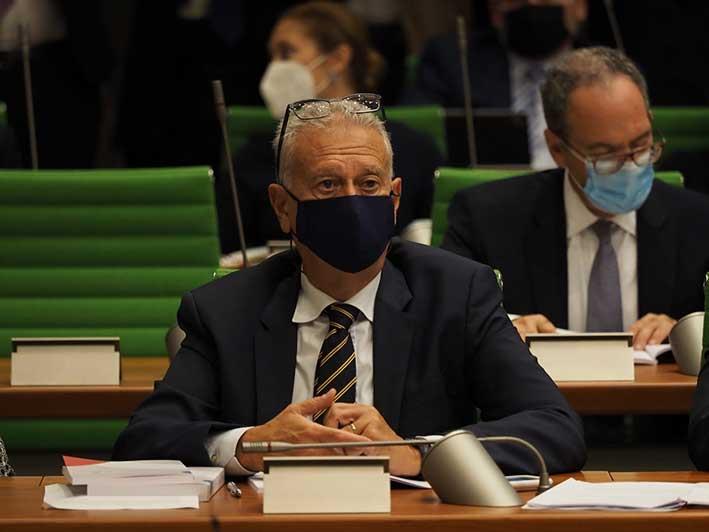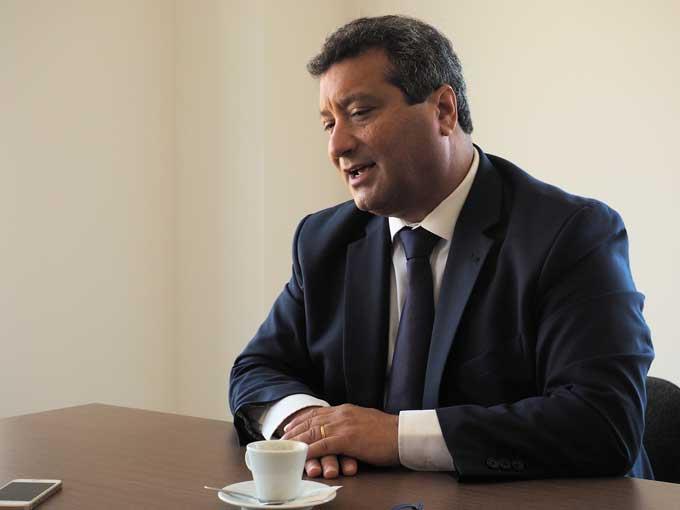During a HORECA webinar where Malta’s budget for 2021 was discussed, the panel of hospitality industry leaders show an overall satisfaction with the measures announced, but one warned that there is still the risk of restaurant closures come winter.
Following the announcement of the annual budget on Monday, HORECA, a magazine dedicated for any professional in the hospitality industry, hosted a webinar consisting of three panelists; BCMS Business and Finance Consultants Managing Director Rodrick Grech, Association of Catering Establishments President Reuben Buttigieg and Gozo Tourism Association CEO Joe Muscat.
Opposition Tourism Spokesperson Robert Arrigo and Malta Tourism Authority (MTA) Chairman Gavin Gulia were also invited to give an opening speech.
‘There wasn’t much to comment on’ - Arrigo
“There wasn’t much to comment on,” Arrigo said of the budget. “What worries me is that there is no plan for the future.” He believes Malta is lagging behind and that the wage supplement and COVID-19 vouchers are just immediate injections where a long-term plan to start upgrading is needed.

“I was also disappointed that all that was mentioned about Air Malta is that the government will be calling for EU state aid. I was not impressed, and neither were stakeholders in this industry who need survival packages until we come out of this pandemic,” he added.
He reminded that there are countries that will come out of this pandemic strong in marketing and flights, so he hopes that the money given to the MTA will actually go into marketing “rather than someone’s pockets.”
“The mechanisms that were promised, failed. The future of the industry and airline is imbalanced. We have to be sure of what we are doing.”
‘We are not just able to come out of it but also do so quickly’ - Gulia
On a different note, Gulia believes that there were two major developments for the industry in this budget.
Firstly, the €10 million increase in allocation for the Authority when compared to 2019; “a sign of confidence in the tourism industry and the authority itself which will help market Malta aggressively once the moment arrives in 2021.”

He also commented on the changes in the threshold for VAT exemption from €20,000 to €30,000 which will go a long way to help start-ups in the tourism industry and also current operators for when they face challenges.
“I can look at 2021 with confidence after what I have seen happening in 2020 as we are able to handle extraordinary situations,” he said. “We were headed for another year of growth then the pandemic struck. Yet, in August we registered 100,000 tourists. There is a sense of repetition here, in the sense that we are not just able to come out of it but also do so quickly.”
Wage supplement and COVID-19 vouchers were and will remain helpful
The panelists were asked to give their respective comments on the budgets and the wage supplement and COVID-19 vouchers were quite the hot topic.
Managing Director Grech said that the industry is underlined with huge fixed costs, so it is no surprise that the supplement was important in keeping the industry alive. However, there are other fixed costs like utility bills as owners cannot switch off everything in their establishments. Another one is rent, which over 54% of businesses were not able to reevaluate with their landowners during the pandemic.
Having said that, he explained that wages are probably the highest fixed cost that employers have. “If you stop to ponder the multiplier effect of 800 people getting €800 in wage per person per month, employers will see the real value of this supplement despite the fact that some might not think it is enough as this income goes straight to their employees.
With regards to the Annex A and Annex B situation, Grech said that the government has been quite flexible with companies which believed they required more help then was being offered to them, if at all. “With 9 months experience behind it, the government can now provide a more holistic approach to this measure.”
From his end, Buttigieg thanked the government for taking immediate action when the Association approached it through the wage supplement and, later, the vouchers “which I would put at the same level as the wage supplement in certain scenarios.”
Asked if he thinks the reduction from €80 to €60 in hospitality will have an impact, he said that it will definitely be something that needs to be evaluated and adapted to.

He added that there were a number of questions in relation to the VAT returns of these vouchers which do not incorporate all the costs as there are things that are exempt from VAT but were not registered in the VAT return. This includes wages themselves.
He appealed for the wage supplement for restaurant to go back to €800 rather than €600. The situation gets even more complicated when considering the industry’s rate of staff turnover. This means that anyone changing their job will not qualify for the wage supplement, in fact, the Association has received reports from owners that they are only benefitting from 40% of the wage supplement they should be entitled to.
Another thing he would like to see the government do is to have the second round of vouchers out for Christmas. “The feeling that we have from our customers is not that they have the money at this stage but they are speculative of what the future holds.”
Asked if he brought this up with the government, he said that while he did, the government had different views as it believes that the civil society would want to enjoy Christmas with or without the vouchers.
CEO Muscat also praised these initiatives, as well as the government’s focus on improving sport establishments and increasing connectivity between Malta and Gozo which will do wonders to attract tourism towards Gozo. However, it would like to see more being said about encouraging businesses to upgrade their product and other things that the GTA had suggested.
Establishments still risk closure come winter
Buttigieg was also asked about the mixed messages that are floating about on catering establishments as some are closing down while other are scheduled to start their business in winter.
“During the pandemic, we estimated that 5% to 10% of establishments were going to close despite government intervention,” Buttigieg explained. “There were cases where people had to close down because they could not keep up with rent and open somewhere cheaper. Others were caught mid investment so they were asked to either continue or stop it.”
He said that the Association will keep surveying the situation but at this point in time, it is expecting more closures despite government help as there is a part of the industry which will give up hope. “It is important to consider social distancing, which means that some restaurants will have little to no indoor space to serve people in during winter which means that a they might not be able to keep up with costs.”